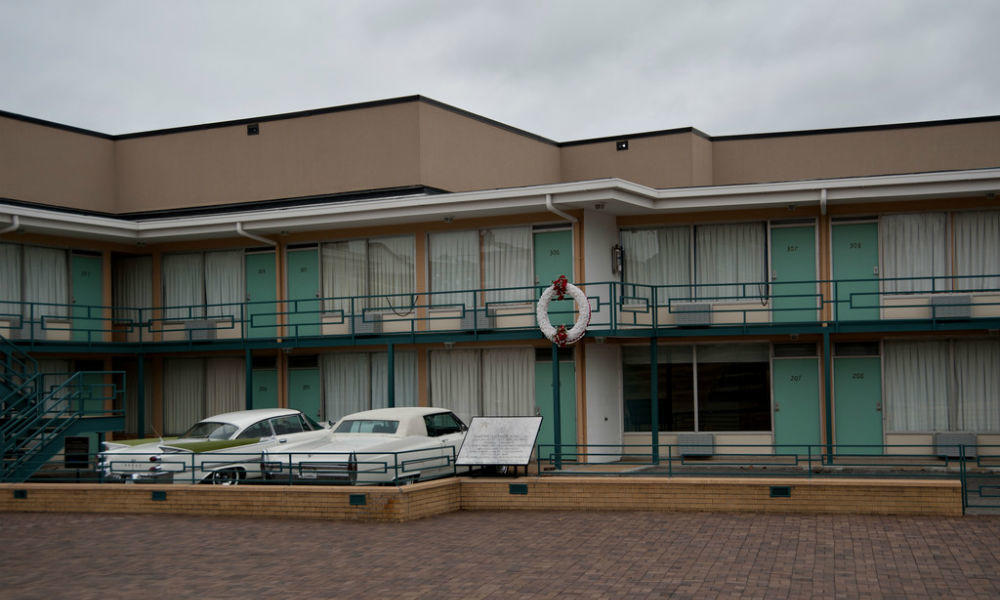Even though the pivotal events that kick-started the fight for equality and social justice in America happened predominantly in the South, there were important events that took place in some very significant places all across the country. There were crucial meeting places for the movement, pedestals for inspiring speeches and sermons, and battlegrounds for non-violent protest.
Listed below are 12 historic sites, in Washington D.C. and across the South, that represent some must-see spots on the trail to achieving civil rights for all Americans.
Birmingham Civil Rights Institute
The Birmingham Civil Rights Institute is a cultural and educational research center whose main goal is to promote understanding of civil rights developments in Birmingham.
Civil Rights Memorial
Maya Lin, who also designed the Vietnam Veterans Memorial in Washington D.C., created this beautiful memorial that stands in an open plaza in downtown Montgomery, Alabama. It was made to commemorate the 41 individuals who died in the struggle to end segregation.
Freedom Rides Museum
The Freedom Rides Museum is set in the Greyhound bus station in downtown Montgomery, Alabama, where young integrated activists traveled together in 1961 on regularly scheduled buses from Washington D.C. to New Orleans in defiance of segregation laws.
Lincoln Memorial

This iconic national monument honors the 16th president of the United States, Abraham Lincoln, who was president during the Civil War and who was one of the most important figures in abolishing slavery. The Lincoln Memorial is also famous for being location where MLK gave his famous “I Have a Dream” speech.
International Civil Rights Center & Museum
The location of the former Woolworth’s in Greensboro, North Carolina, was the site of the 1960 anti-segregation sit-ins — a major catalyst of the Civil Rights Movement. The International Civil Rights Center & Museum is now housed there, a prominent center that showcases the international struggle for civil and human rights.
Martin Luther King Jr. Center for Nonviolent Social Change
Based in Atlanta, Georgia, this is a nonprofit cultural institution focused on keeping the memory and the message of MLK alive. While you’re there, make sure to see Dr. and Mrs. King’s crypt, the Martin Luther King Jr. National Historic Site (King’s birth home), and the Historic Ebenezer Baptist Church (where King was co-pastor with his father for a year).
Martin Luther King Jr. Memorial

The 30-foot-tall granite statue, located in Washington D.C.’s West Potomac Park, was created by sculptor Lie Yixin, and was inspired by the line “out of a mountain of despair, a stone of hope” from King’s “I Have a Dream” speech.
You may also like: How Well Do You Know Martin Luther King Jr. Day Facts? Let’s Find Out!
National Museum of African American History and Culture
Part of the Smithsonian Institution, the National Museum of African American History and Culture opened to the public in 2016. Located on the National Mall in Washington D.C., it’s the only national museum “devoted exclusively to the documentation of African-American life, history, and culture.”
Little Rock Central High School National Historic Site
Recognized as a National Historic Site for the role it played in the desegregation of public schools in America, this little high school saw many an unpleasant altercation back in 1957, when nine African American students bravely chose to attend the formerly white-only school.
National Civil Rights Museum

[Above image “National Civil Rights Museum – The Lorraine Motel – Room 306 – Memphis TN” by Carl Wycoff on Flickr — licensed under CC BY 2.0]
National Voting Rights Museum
Located in Selma, Alabama (at the foot of Edmund Pettus Bridge), the National Voting Rights Museum opened in 1993 and pays tribute to the history and legacy of the activists who participated in the 1965 Selma to Montgomery marches and the passage of the 1965 Voting Rights Act, as well as the Women’s Suffrage movement.
Sixteenth Street Baptist Church
This 106-year-old church in Birmingham’s Civil Rights District was the first black church to organize in the city and served as headquarters for civil rights activists during the 50s and 60s. On September 15, 1963, the Ku Klux Klan bombed the church, killing 4 young girls and injuring more than 20 others. This horrible crime only galvanized the movement and made clear the urgency to pass legislation against discrimination. Didn’t know about it? Maybe it’s time to score some cheap domestic flights to discover this key, historic location by yourself!








